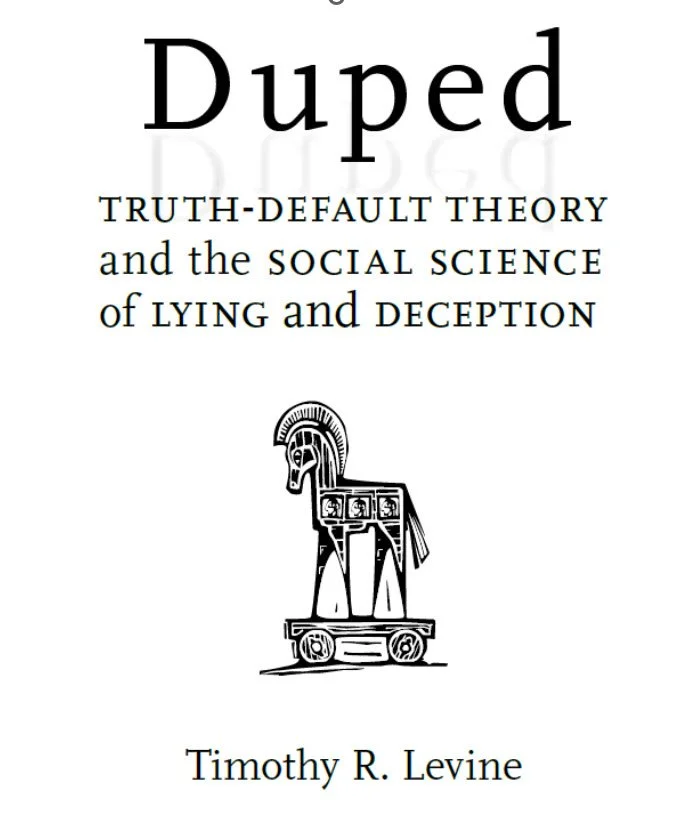Duped: Truth-Default Theory and the Social Science of Lying and Deception
“Tim Levine has given us an elegant and persuasive explanation of one of the oldest puzzles in psychology. Why are human beings so easily deceived? Duped has completely changed my understanding of liars and their lies.”
—Malcolm Gladwell, author of Outliers and host of the podcast Revisionist History
https://www.uapress.ua.edu/9780817359683/duped/
Duped: Truth-Default Theory and the Social Science of Lying and Deception recounts a decades-long program of empirical research that culminates in a new theory of deception—Truth-Default Theory. This theory holds that the content of incoming communication is typically and uncritically accepted as true, and most of the time, this is good. Truth-default allows humans to function socially. Further, because most deception is enacted by a few prolific liars, the so called “truth-bias” is not really a bias after all. Passive belief makes us right most of the time, but the catch is that it also makes us vulnerable to occasional deceit.
My research on lie detection and truth-bias has produced many provocative new findings over the years. I have uncovered what makes some people more believable than others and discovered several ways to improve lie-detection accuracy. In Duped, I detail where my ideas came from, how they were tested, and how the findings combine to produce a coherent new understanding of human deception and deception detection.
Erik Asp (2021) reviewed Duped for Journal of Communication: https://doi.org/10.1093/joc/jqaa026
Duped won the Distinguished Book Award in 2020 from the Social Cognition Division of the National Communication Association.
Here is what is in the book:
The full and complete version of Truth-Default Theory
50 studies and experiments testing and replicating Truth-Default Theory
The story of how I became a deception researcher and where my ideas came from
A summary of research on “cues.” Are there behavioral tells that signal lying? The sort answer is no.
A summary of research on deception detection and the vast amount research showing that people are not very good at detecting lies (and the limits of that research).
A summary and critique of prior theories of deception
An in depth analysis of the issues involved in defining deception
A look at the different forms of deception: Outright lies, omission, evasion, equivocation
A series of studies looking at how often people lie
A series of studies looking at why people lie
The research on “matched” and “mismatched” communicators that Malcomn Gladwell talks about in Talking to Strangers
Research showing five proven ways to improve lie detection and avoid getting duped.
